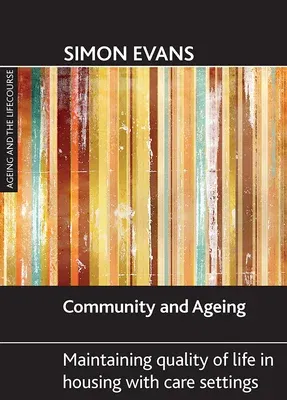Specialist forms of housing with care are becoming increasingly popular
in the United Kingdom, largely as a result of the ageing of the
population and the relative wealth of the latest generation of older
people. Retirement villages and extra care housing are two models of
provision that have seen particularly spectacular growth. This is partly
because in many ways they are perceived to promote government agendas
for increasing independence and wellbeing for older people. They also
aim to meet older people's aspirations for a good quality of life in
their retirement years and to live somewhere they feel they belong. Many
such housing developments are marketed as 'communities of like minded
people', offering security, peace of mind, a range of facilities and new
opportunities for friendship and social interaction. This important book
investigates changing concepts and experiences of community across the
lifecourse and into older age and how they play out in housing with care
settings. An overview of how the housing with care sector has developed,
both in the UK and internationally, is provided. The book emphasizes the
central importance of a sense of community for older people's quality of
life and explores the impact of a range of factors including social
networks, inclusive activities, diversity and the built environment. The
book will be of particular interest to students in the fields of
gerontology, social policy, housing, planning, the built environment and
community development. It will also appeal to academics, policy makers,
practitioners, service providers and researchers, both in the UK and
other countries with similar housing with care options, including the
USA, Australia and New Zealand.

